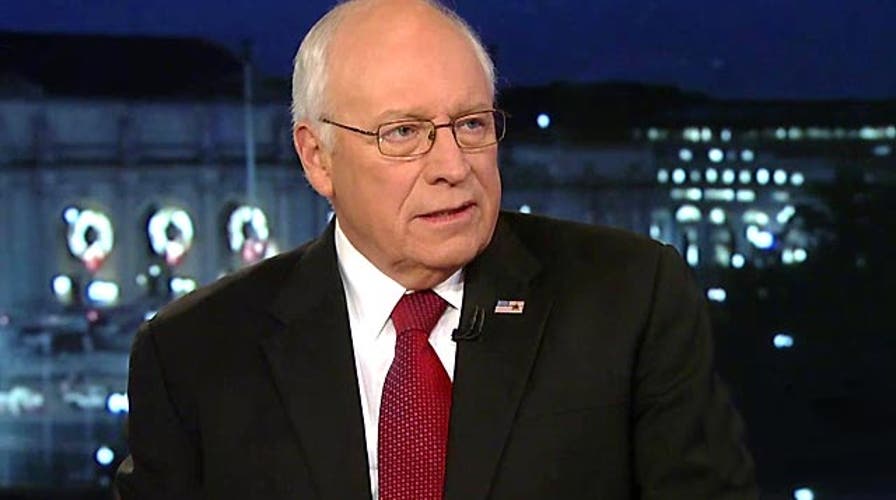WASHINGTON – Former Vice President Dick Cheney slammed the recently released Senate report on CIA interrogation techniques Wednesday, calling it “full of crap,” and a “terrible piece of work” that was “deeply flawed.”
Cheney, speaking on Fox News' “Special Report with Bret Baier,” said some of the controversial techniques used on militants had been previously tested and the interrogations produced results.
Cheney acknowledged he had not read the entire 500-page report summary. He strongly defended the tactics, including waterboarding and rectal hydration.
“What are you prepared to do to get the truth against future attacks against the United States?” Cheney asked.
Cheney also refuted claims that President George W. Bush was kept in the dark about the interrogations.
“I think he knew everything he wanted to know and needed to know,” Cheney told Baier.
A Democrat-led Senate panel released a scathing report Tuesday on CIA interrogation practices amid warnings from lawmakers that the findings could "endanger the lives of Americans" -- a concern the Obama administration apparently shared as it put more than 6,000 Marines overseas on high alert.
The report, from the Senate intelligence committee, claimed the interrogation techniques used were "brutal and far worse" than the CIA represented to lawmakers. Further, the report claimed the tactics were not effective and the spy agency gave "inaccurate" information about it to Congress and the White House.
Sen. Dianne Feinstein, D-Calif., the head of the intelligence panel who ordered the release of the report, alleged on the Senate floor on Tuesday that the CIA techniques in some cases amounted to "torture."
"History will judge us by our commitment to a just society governed by law and the willingness to face an ugly truth and say 'never again'," she said on the floor. "There may never be the right time to release this report. ... But this report is too important to shelve indefinitely."
The White House and President Obama backed the decision to release the report, despite warnings from lawmakers and some inside the administration that it could lead to a backlash against Americans.





